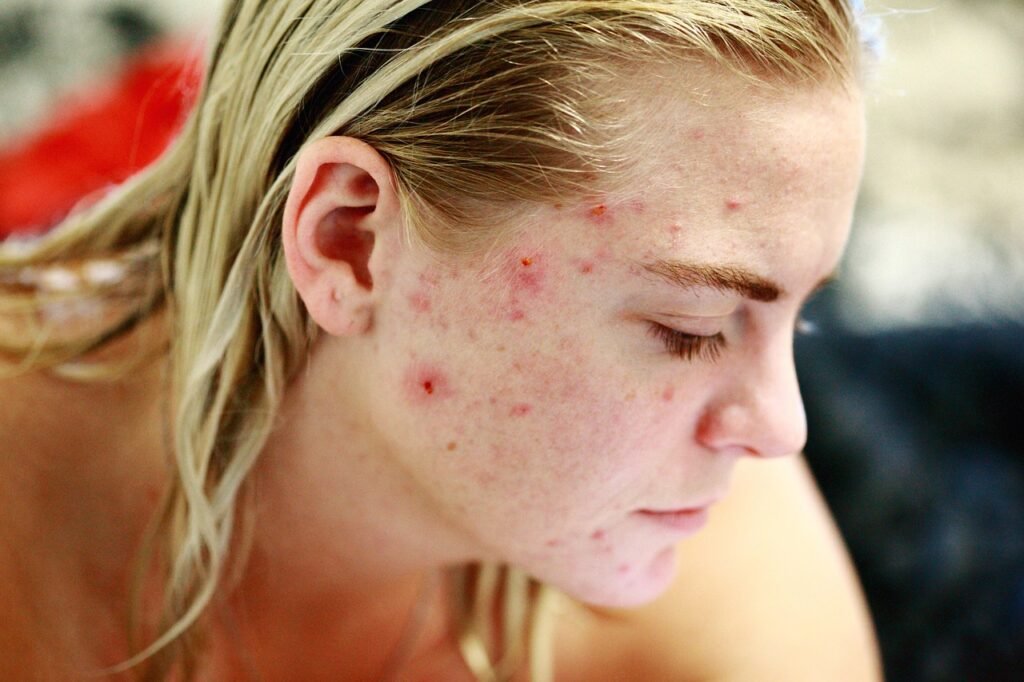How to Get Rid of Acne
Clear skin is not about perfection — it’s about confidence, comfort, and calm. How to get rid of acne is a question that affects nearly everyone at some point, regardless of age, skin type, or lifestyle. Fortunately, there are kind and effective ways to treat breakouts without causing further harm. This post is here to help you do just that — with guidance rooted in care, patience, and skin-positive habits.
Understand What Causes Acne
Before you treat it, you must understand it. Acne occurs when hair follicles become clogged with oil and dead skin cells. Because hormones, diet, stress, and skincare products can all contribute, the causes vary from person to person. Moreover, acne can show up as blackheads, whiteheads, pimples, cysts, or nodules, making the experience even more frustrating.
However, knowing your acne type helps you choose the right method. For instance, if you’re struggling with hormonal acne, the approach differs from that of surface-level whiteheads. Additionally, environmental stressors like pollution and harsh weather can also influence flare-ups.
Gentle Daily Routine for Acne-Prone Skin
Once you understand the root cause, it’s time to build a daily routine. Always begin with a gentle, non-foaming cleanser. Harsh cleansers strip your skin’s natural oils, which leads to more oil production and, eventually, more breakouts. Instead, look for ingredients like salicylic acid, benzoyl peroxide, or tea tree oil in mild formulations.
Next, apply a lightweight, non-comedogenic moisturizer. Although many believe oily skin doesn’t need moisture, skipping it can cause dehydration, which increases oil production. Therefore, hydration is essential.
Also, don’t forget sunscreen. It protects healing skin and prevents dark marks from getting darker. Choose a mineral SPF with zinc oxide or titanium dioxide.
Poetic Interlude: Skin’s Whisper
A pimple blooms — you feel the sting, Still, your skin’s a sacred thing. It tells a tale of stress and sleep, Of foods you crave and fears you keep. But treat it kind and let it heal, And soft again your face will feel.
Lifestyle Habits That Help Heal Acne
Acne care isn’t only about skincare products. Your habits shape your skin, too. So, what can you do beyond your bathroom mirror?
Firstly, stay hydrated. Water supports your skin’s elasticity and helps flush out toxins. Secondly, reduce your intake of high-sugar or high-dairy foods — both have been linked to breakouts in some individuals.
Moreover, try to manage stress. Cortisol, the stress hormone, can increase oil production. Include breathing exercises, walks, or journaling to help your system find calm. Sleep also matters — skin regenerates overnight, and lack of rest can disrupt your hormonal balance.
And yes, always clean your pillowcases, phones, and makeup brushes. Bacteria love to settle there.
Over-the-Counter Treatments That Work
If breakouts persist, it might be time to include targeted treatments. Salicylic acid exfoliates inside pores, while benzoyl peroxide kills bacteria. Niacinamide reduces redness and supports barrier repair.
Although these ingredients are effective, start slow. Using too many active ingredients at once can backfire. Instead, apply a pea-sized amount every other night and monitor your skin.
Don’t forget: Patch-test new products before applying them to your full face.
Learn more in our Barrier Repair Guide to avoid over-stripping your skin.
Prescription Options: When to See a Dermatologist
If your acne is severe or painful, see a dermatologist. Prescription creams like retinoids, topical antibiotics, or even oral medications might be needed. In some cases, hormonal treatment such as birth control pills or spironolactone is recommended for hormonal acne.
Always consult a medical professional — don’t self-prescribe. Not every treatment works for every skin type, and some can worsen sensitive skin.
Read more from the American Academy of Dermatology for medically approved acne treatments.
What NOT to Do When Fighting Acne
You may be tempted to pop, scrub, or load your skin with products — but resist the urge. Picking causes scars and spreads bacteria. Over-washing can compromise your skin barrier. More isn’t always better.
Also, avoid following random online trends. Lemon juice, toothpaste, and baking soda have no place on your skin. Stick to science-backed, dermatologist-approved methods instead.
Long-Term Approach: Glow Up Without the Pressure
Acne doesn’t vanish overnight, and that’s okay. Your goal isn’t perfect skin — it’s healthy skin. So, consistency matters more than intensity. Stick to a routine, adjust slowly, and be patient with your body.
Besides, your worth isn’t tied to your complexion. Acne may affect your appearance, but not your value. Confidence glows brighter than any blemish.
Internal Reminder: Skincare Is Self-Care
More than anything, healing acne is about being kind to yourself. Some days will be better than others. Even when breakouts return, it doesn’t mean you’ve failed. Progress isn’t always linear.
So, choose comfort over chaos. Choose care over criticism. And above all, choose habits that help your skin thrive from within.
FAQs: How to Get Rid of Acne
Q: How fast can I get rid of acne?
A: Results vary. Some improvements may show in a few weeks, while deeper healing can take months. Patience is essential.
Q: Can diet really affect acne?
A: Yes, in some people. High-glycemic foods and dairy may trigger breakouts. Observe your skin’s response and consult a dermatologist.
Q: Is it safe to use acne products daily?
A: Yes, but moderation matters. Start with a few nights per week, especially for active ingredients like acids or retinoids.
Q: Will my acne come back after treatment?
A: It depends on your routine and causes. Hormonal changes, stress, or skipping skincare may trigger recurrence. Ongoing care helps reduce this.
Q: Should I contact a dermatologist for acne?
A: Definitely. Especially if over-the-counter products haven’t helped or acne is painful, a dermatologist can offer specialized solutions.

